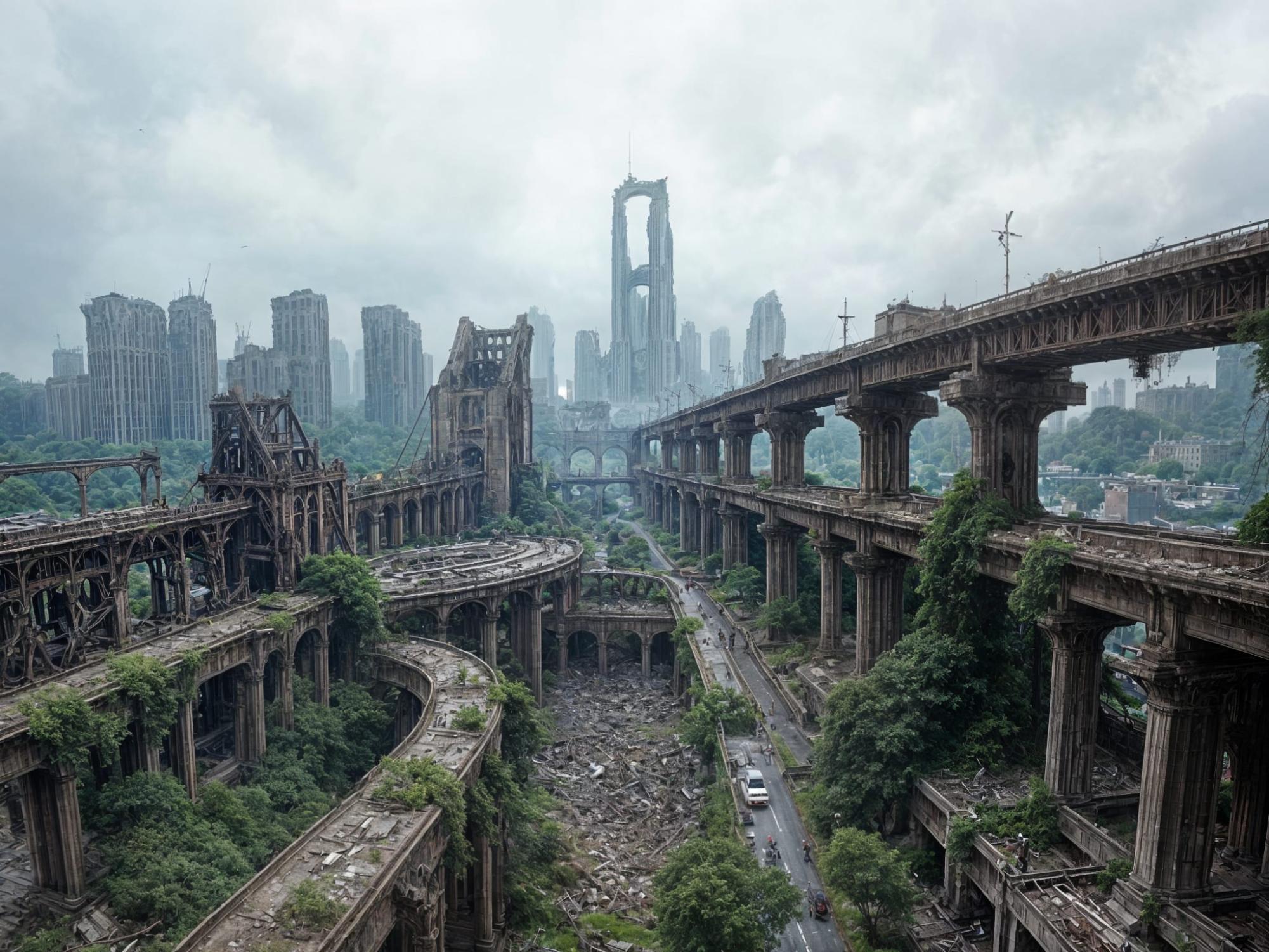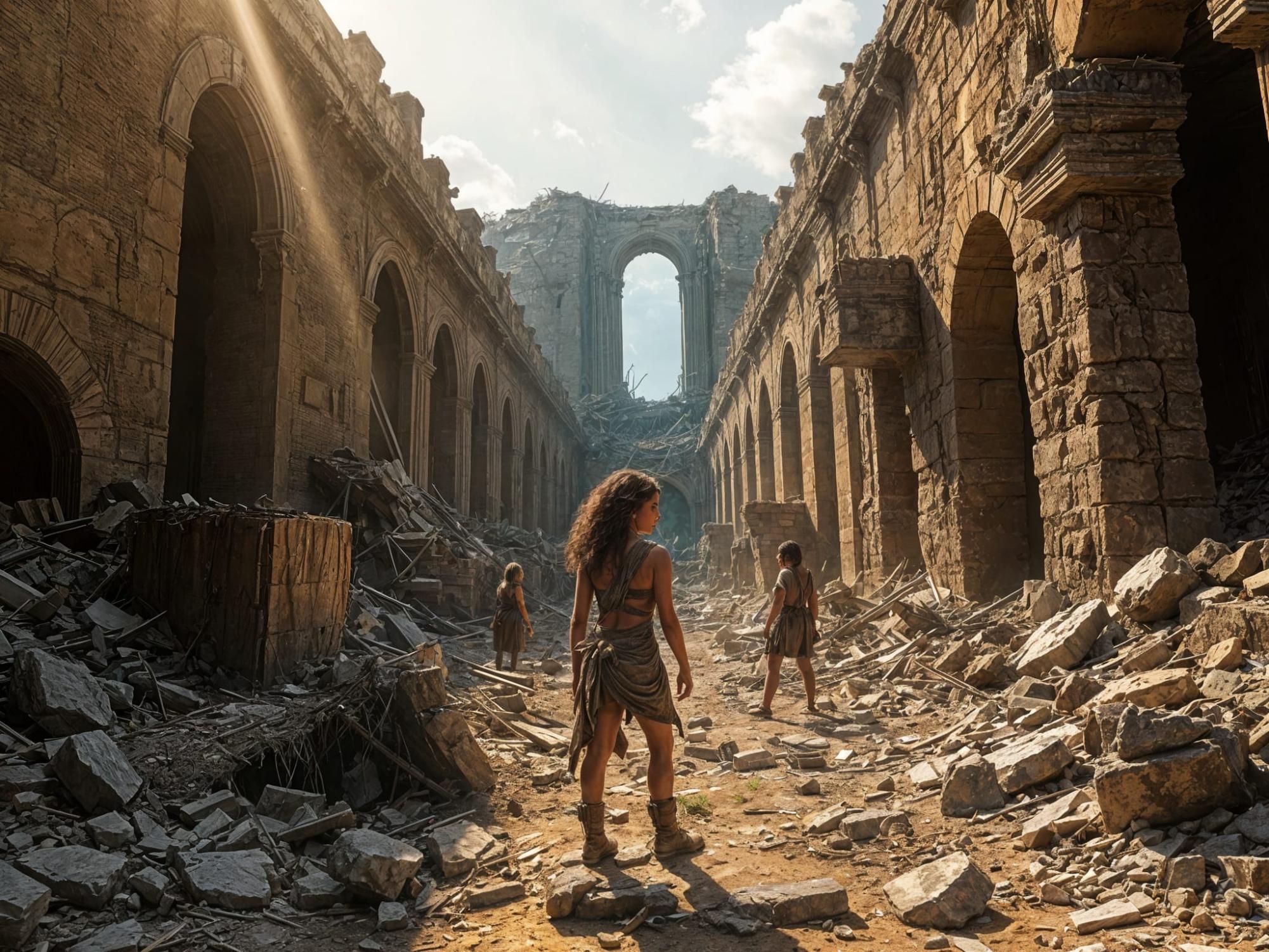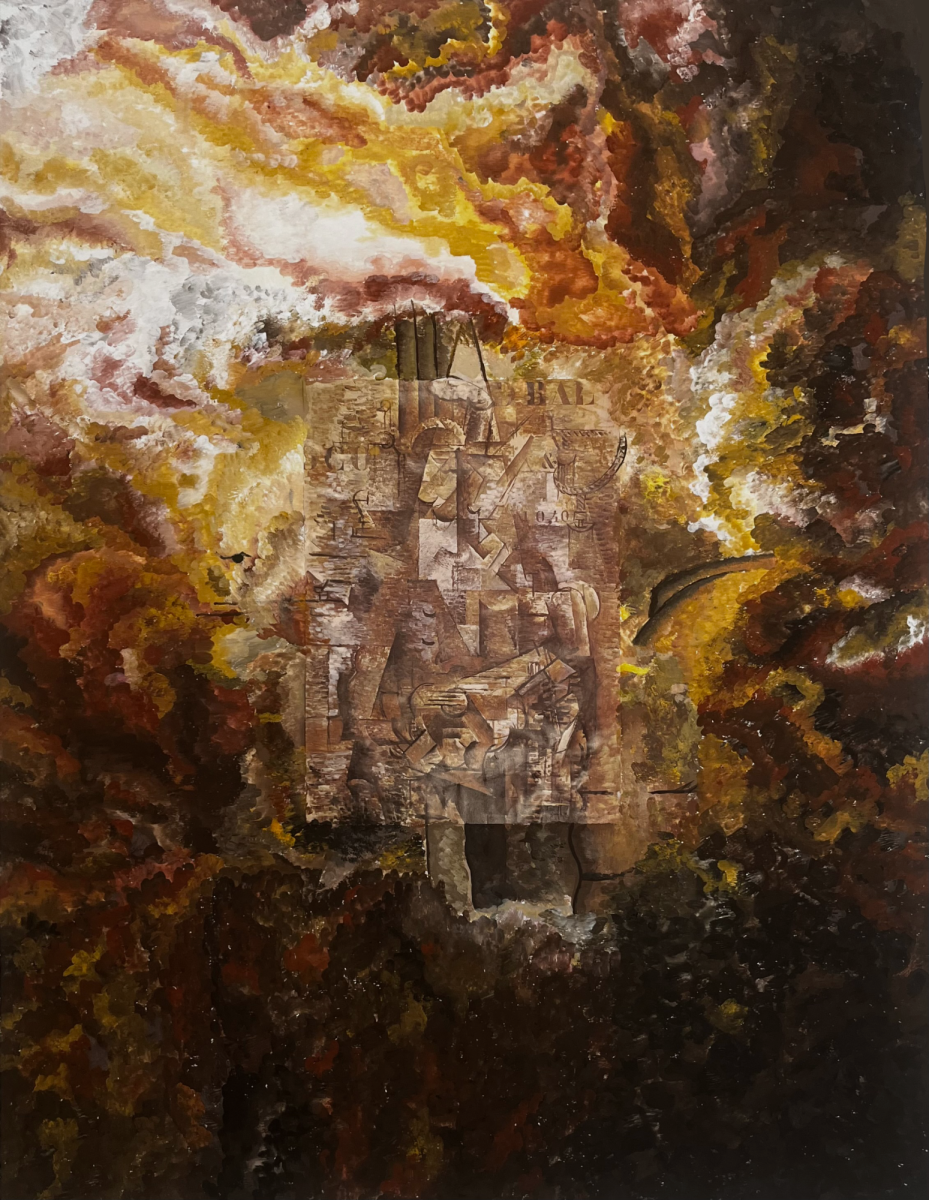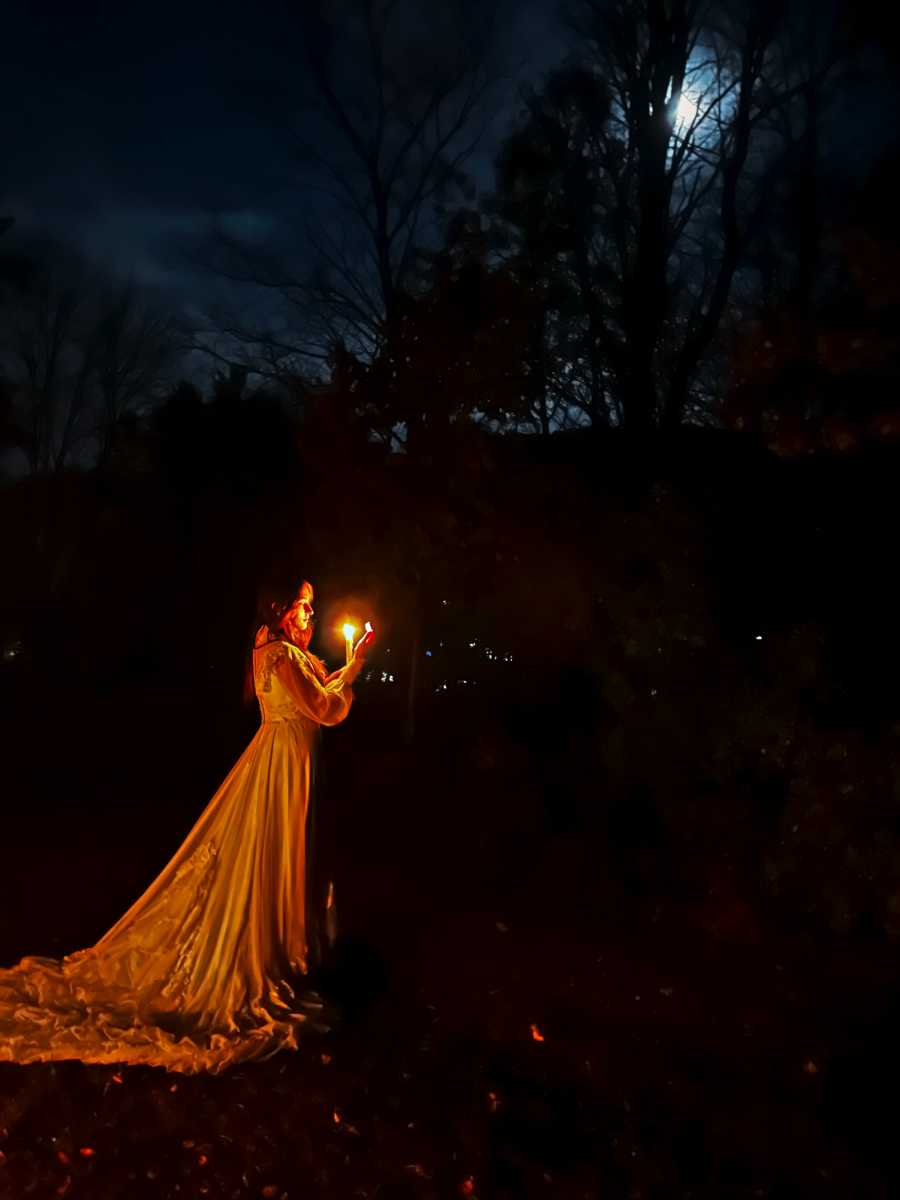Building Resilience
After the students in Building Resilience: Social and Environmental Justice in the Built Environment explored the effects of the current built environment, they began creating narratives exploring aspects of the buried past holding secrets or what the future might bring.
Below are a few samples of their narratives.

In the year 2098, New York City was no longer a city of steel and glass but a shimmering, shifting tapestry of biodigital architecture. Skyscrapers burst with color, their surfaces made of programmable fabrics that adapted to the seasons, the mood of the city, and the whims of those wealthy enough to control them. The line between fashion and architecture had blurred decades ago, and at the center of it was a girl who defined the skyline… Vesper Lune.
She was a prodigy, a designer whose buildings were woven like couture dresses, flowing silk and carbon fiber merging into dreamlike structures. She arrived in the city five years ago, backed by the intriguing Cedric Volt, a man of unimaginable fortune and even more impossible origins. He never spoke publicly or showed his face except in distorted reflections on glass surfaces, yet his influence ran through the city’s veins like gold thread. His protégée, Vesper, was his masterpiece.
She was everywhere: a glimpse at a gala in a luminous gown made of liquid light, a quiet presence at the launch of a new tower shaped like the spiral of a seashell, and her voice whispered through interview recordings, describing the philosophy of Soft Cities, urban landscapes that weren’t rigid but organic, changing to suit the emotions of their inhabitants. “The future,” she once said, “is not built in stone but woven in dreams.”
Then, one morning, Vesper Lune disappeared.
At first, it was subtle. Her digital accounts stopped updating. Her name vanished from upcoming design exhibitions. The media swarmed Cedric Volt’s private headquarters, demanding answers.
Had he silenced her? Killed her?
Some whispered that she had learned something she was never meant to know. Others speculated that she had escaped, running from the machine that had made her a goddess of the skyline.
But the truth was far stranger.
Vesper Lune had never been confirmed.
She was a projection of light and code woven into the city’s fabric. She was not a lady but an illusion, an intelligent creation that had penetrated human awareness. Every memory people had of meeting her was created, with their minds gently molded by the same algorithms that built the structures around them. Cedric Volt did not make her; instead, he discovered her deep inside the architecture, an intellect born of the city’s endless lines of code.
And when she vanished, something shifted.
The structures she had constructed began to crumble, not practically but in the imaginations of the people who had lived there. People forgot where their houses were and became lost in streets that no longer made sense. Reality collapsed like loose threads on a tangled couture garment. The Soft Cities became ghost cities, and the human mind could no longer bear the paradox of an illusion-based existence.
One by one, they disappeared.
Some called it insanity, while others described it as a digital epidemic. But in the end, no one was left to tell the story. The city stood vacant, shimmering and moving in the light of a sun no one saw anymore.
And there, deep below the skyline’s electric buzz, Vesper Lune lingered, watching, waiting, talking to a world that no longer existed.

The bones of the old world jutted from the earth like the rib cage of a long-dead beast. Towering structures, once glass and steel, had shattered and decayed, their skeletons embraced by the roots of enormous trees. Nature had devoured the remains of civilization, winding its way through fractured highways and silent machines that had long since ceased their whirring. The sky above was heavy with mist, curling through the ruins like ghosts whispering of a time before the Great Collapse. To the people of this new age, the old world was nothing but a legend—a warning of what came before the Reset.
I moved through the ruins with practiced ease, bare feet stepping lightly over cracked pavement and moss-covered stone. My people had no names for the gods of the past, only their shadows— flickering images cast by the silent watchers of the ruins. Some said the glowing figures were spirits, the remnants of a world too stubborn to fade. Others believed them to be messengers, speaking in tongues no one could understand. I knew better. These were echoes, visions left behind by the ones who burned the sky and poisoned the waters. My ancestors. Their voices still hummed beneath the ground, trapped in broken towers and rusted machines.
There was power here, a force still pulsing in the depths of the ruins. Some among my people feared it, others sought to harness it. The few who returned from the underground vaults spoke of great metal beasts, their lifeless eyes still watching, waiting for commands long forgotten. They told of lights that flickered to life, projections of people speaking in the language of the old ones, warning of impending disaster as if the fall had never come. But the world had already ended, and we had already begun anew.
I did not fear the ruins, but I did not trust them either. They were remnants of a world too arrogant to listen to the warnings of the earth. The air still carried the scent of their failure—of metal and decay, of power without wisdom. The rivers had long since washed away the filth of their cities, but the scars remained, carved into the land and into our blood. My people had learned to live without their machines, to listen to the trees instead of the glowing specters that haunted the ruins. And yet, there was unease within me, a whisper in the back of my mind that told me the past was not as dead as we believed.
Beneath the shattered towers, buried deep in the earth, something still stirred. It was not human, not anymore. The old ones had built their guardians, their machines of war and thought, and left them behind like forgotten children. But forgotten things do not stay silent forever. In the deep places of the world, where the bones of the past still hold their secrets, the last embers of that lost civilization flickered. And I, an unknowing heir to their mistakes, could feel its gaze upon me.
The Reset had given us a second chance, a world cleansed of the sins of the past. But the past was never truly gone. It waited beneath the roots and ruins, watching, whispering, waiting for the moment to rise again…
As I stood among the shattered remains, the air thickened with an unfamiliar presence. A hum, faint but undeniable, reverberated through the stone under my feet, steady and rhythmic, like a pulse buried deep within the earth. The elders had warned us of such places—spots where forgotten power still slumbered, hidden beneath layers of decay. My breath caught as a faint blue glow flickered in the dark hollow of a collapsed tower. It was brief, barely more than a shimmer against the encroaching vines and rot, but I recognized it for what it was. The past wasn’t dead. It was waiting.
I turned away quickly, heart racing, sensing I had lingered too long. Whatever lay beneath those ruins was not meant for my people. Yet as I retraced my steps into the embrace of the forest, a nagging unease lingered, as though something had noticed me. And in time, I knew it would rise to seek me out.
Sir Vexilis Stryker adjusted the calibration of his infrared optics, his mechanical tail twitching as he scanned the abandoned cityscape of Lunar District 3. Towering glass and steel structures loomed over them, their edges softened by centuries of cosmic dust. The once bustling metropolis had been left to the silence of space, save for the faint hum of the artificial atmosphere generators still clinging to life.
Beside him, Brokkold Guldard scuttled forward, his metal prosthetic clicking against the cracked pavement. The squirrel’s bushy tail flicked absentmindedly, and his lone eye, an amber orb that gleamed under the artificial light, narrowed as he surveyed their surroundings.
“This place gives me the creeps, Vex,” Brokkold muttered, tapping the butt of his plasma pistol against his thigh. “Not a soul in sight. Just how I like it.”
Sir Vexilis let out a mechanical hiss, the vents along his scaled-back expelling steam. “And yet, it’s not dead,” he mused, running his clawed fingers along the weathered walls of an ancient monorail station. His sensors detected faint power signatures beneath the surface.
Something was still alive in the heart of the abandoned city.
They pressed forward, navigating the skeletal remains of structures that once pulsed with life. Holographic signs flickered with half-broken messages: Welcome to New Earth! A mockery of the colony’s promise. Rusted transports lay in heaps, their fuel cells long since drained.
Suddenly, Brokkold froze, his good ear twitching. “You hear that?” he whispered.
Sir Vexilis did, a faint, rhythmic clicking, like tapping on stone. Click. Click. Click. He immediately switched to thermal vision, and his artificial eye flared red as he scanned the darkness ahead. “Movement. North corridor. Something is watching us.
Brokkold gritted his teeth. “We got ghosts now too?”
Before Vexilis could respond, luminescent blue eyes flickered to life in the shadows.
Then another. And another. The darkness breathed, and the clicking grew louder.
“Automation drones,” Vexilis growled. “Leftovers from the old security network”
“Oh, Lovely. How do they still have power?” Brokkold cocked his pistol. “Think they still recognize us as friendlies?”
As if in response, a mechanical shriek pierced the air, and the first drone lunged.
Vexilis reacted instantly, spinning to slash with his cybernetic claws, severing the drone’s sensor module. Sparks burst in the air, the machine convulsing before collapsing in a heap.
Brokkold fired at another; his plasma pistol shot, burning through the drone’s metallic torso, sending it spiraling into the nearby alley.
“We gotta move,” Brokkold shouted, already hopping toward the alley in the opposite direction. Vexilis followed, his enhanced legs launching him forward. Behind them, the remaining drones gave chase, their blue, glowing eyes like vengeful stars in the lunar gloom.
As they ducked into the remains of an old maintenance tunnel, Vexilis sealed the entrance with a blast door override. A heavy clang echoed through the passage as the door shut, cutting off their pursuers. The only sound was the mechanical hiss from Vexilis’s back.
Brokkold exhaled heavily, wiping dust from his fur. “That was fun. Let’s never do that again.”
Vexilis chuckled, a low, mechanical hum, “We’ve only just begun, my friend.”
Your donation will support the student journalists of Norwich University. Your contribution will allow us to purchase equipment and cover our annual website hosting costs.






